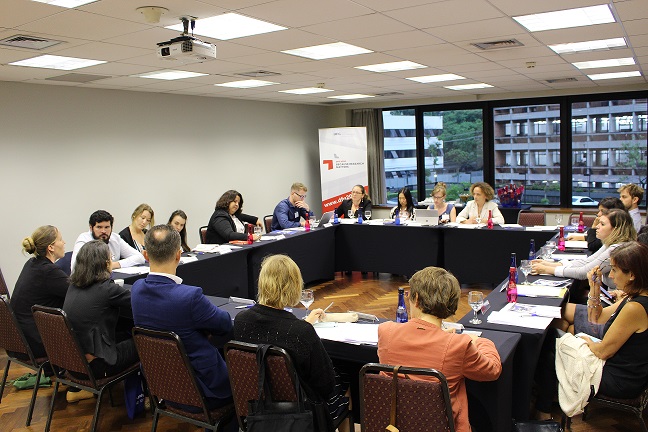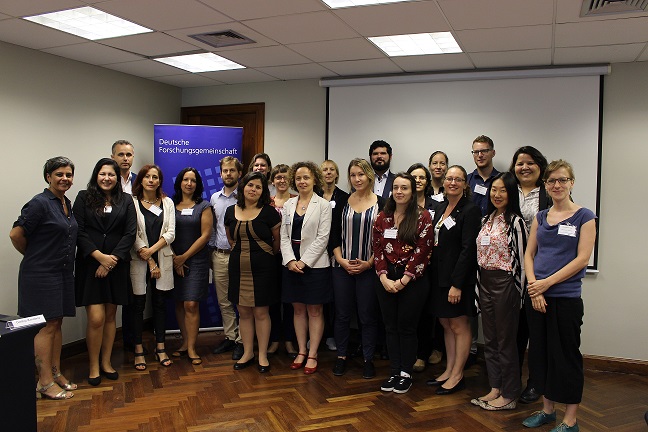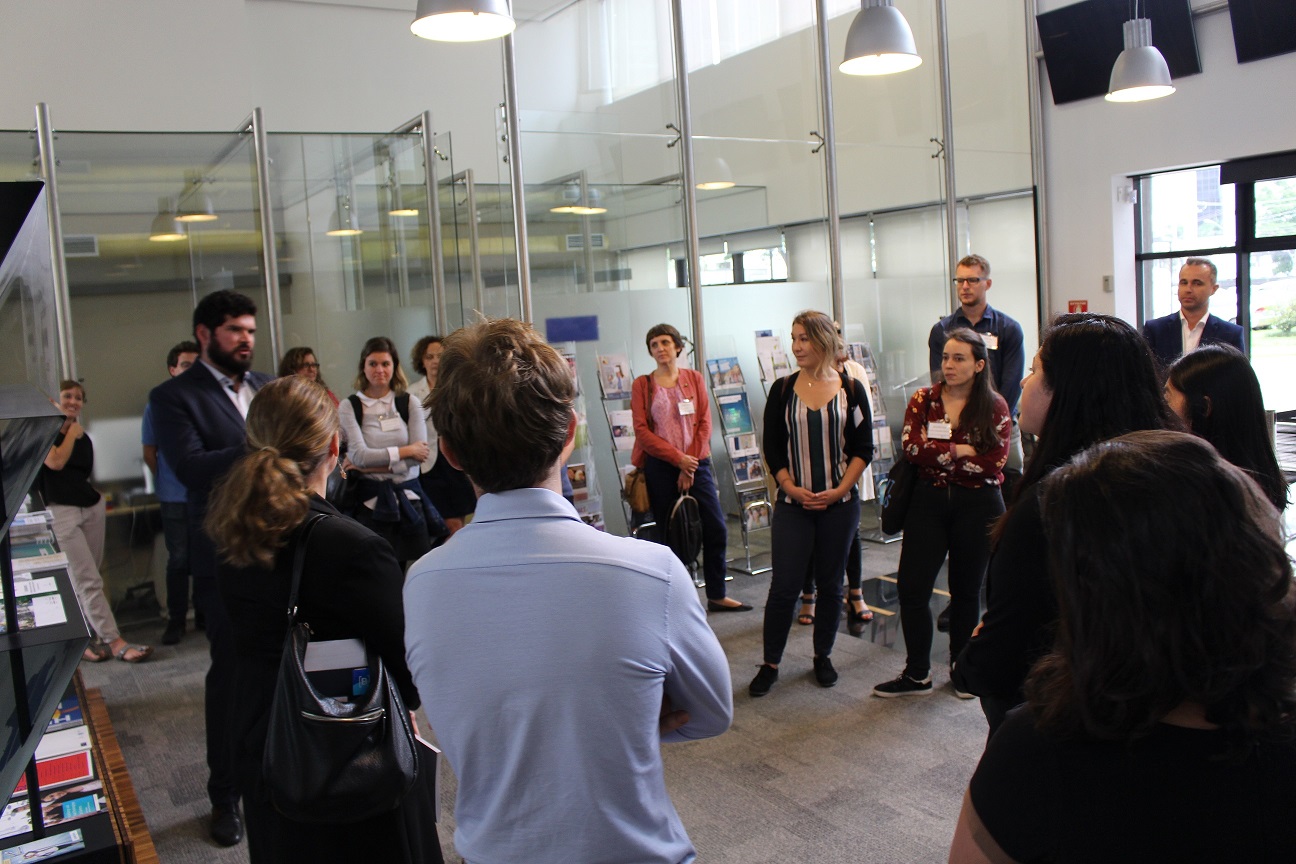DFG Brings Together Funding Agencies in São Paulo
(11.12.19) On 27 November in São Paulo, the DFG Latin America brought together the leading organisations in the promotion of research and innovation as well as representatives of nine countries that are active in Brazil for a second round of discussions on scientific research cooperation with Brazil. The aims were to have a general exchange of experiences and to discuss challenges and opportunities in international scientific cooperation and in innovation.

Sharing experiences on international scientific cooperation in Brazil
© DFG
In the first part of the meeting each institution presented itself and then specific issues were addressed in more depth. The discussion covered types of cooperation models, the current science policy situation in Brazil, and aspects of funding, research funding strategies in times of economic crisis and experiences in technology transfer.
Besides these topics, there was also a focus on the strengths and challenges of bilateral cooperation. The participants all agreed that Brazil plays a leading role in the global science and environment arena and that the country is home to some outstanding institutions and researchers. For this reason, it is essential to maintain cooperation in the domain of science and technology, and this is on the current agenda of all the participating institutions. "In times of political and economic crisis it's important to find alternatives to prevent the mechanisms of cooperation from being adversely affected," said Diego Arruda, Newton Fund Manager (UK).

Participants at the meeting came from nine different countries
© DFG
Funding cuts for science and research in Brazil was one of the problems being faced by all agencies involved in bilateral cooperation, but the countries have decided to pursue continuity in scientific and technological cooperation. A number of agencies reported that they are making positive use of the situation by seeking alternative ways to source project funding. Marie-Hélène Béland, Vice-Consul and Trade Commissioner for trends in science, technology and innovation at the Consulate General of Canada in São Paulo, also emphasised: "The dialogue with universities is of vital importance in sustaining our activities." In addition, it is becoming increasingly common to establish cooperation projects in which the return service is economic rather than monetary.
Looking to the future
The countries anticipate that cooperation in science and innovation will be renewed and intensified such as to enable collaboration with Brazil on internationalisation efforts. To achieve this, the focus will be on identifying advanced models for the co-financing of research, intensifying scientific communication, foreign language skills and programmes to promote diversity in science, particularly to encourage women.

Visit to the German House for Research and Innovation in São Paulo
© DFG
Among the areas of knowledge prioritised by the individual countries that correspond to Brazilian interests, the following areas stand out: environmental technologies, oil and gas, mining, biosciences, urban development in the digital era (smart cities), the green economy, oceanography, ICT and nanotechnology. Multilateral projects, the development of consortia, and initiatives that extend beyond the Rio-São Paulo axis are among the goals for the years ahead.
In future, the participating institutions plan to meet once a year to discuss specific issues. It is intended that further countries will participate in future discussions.